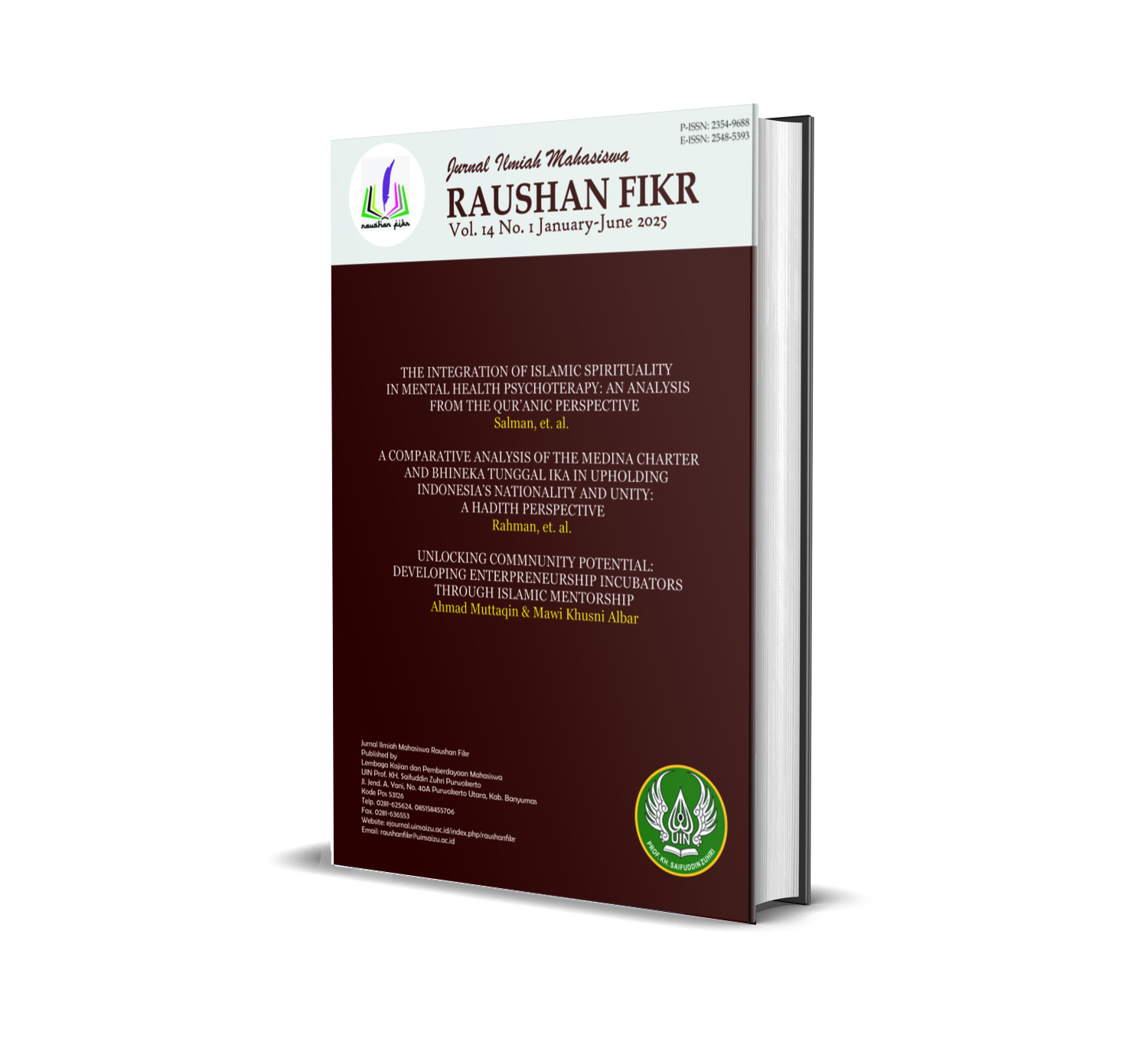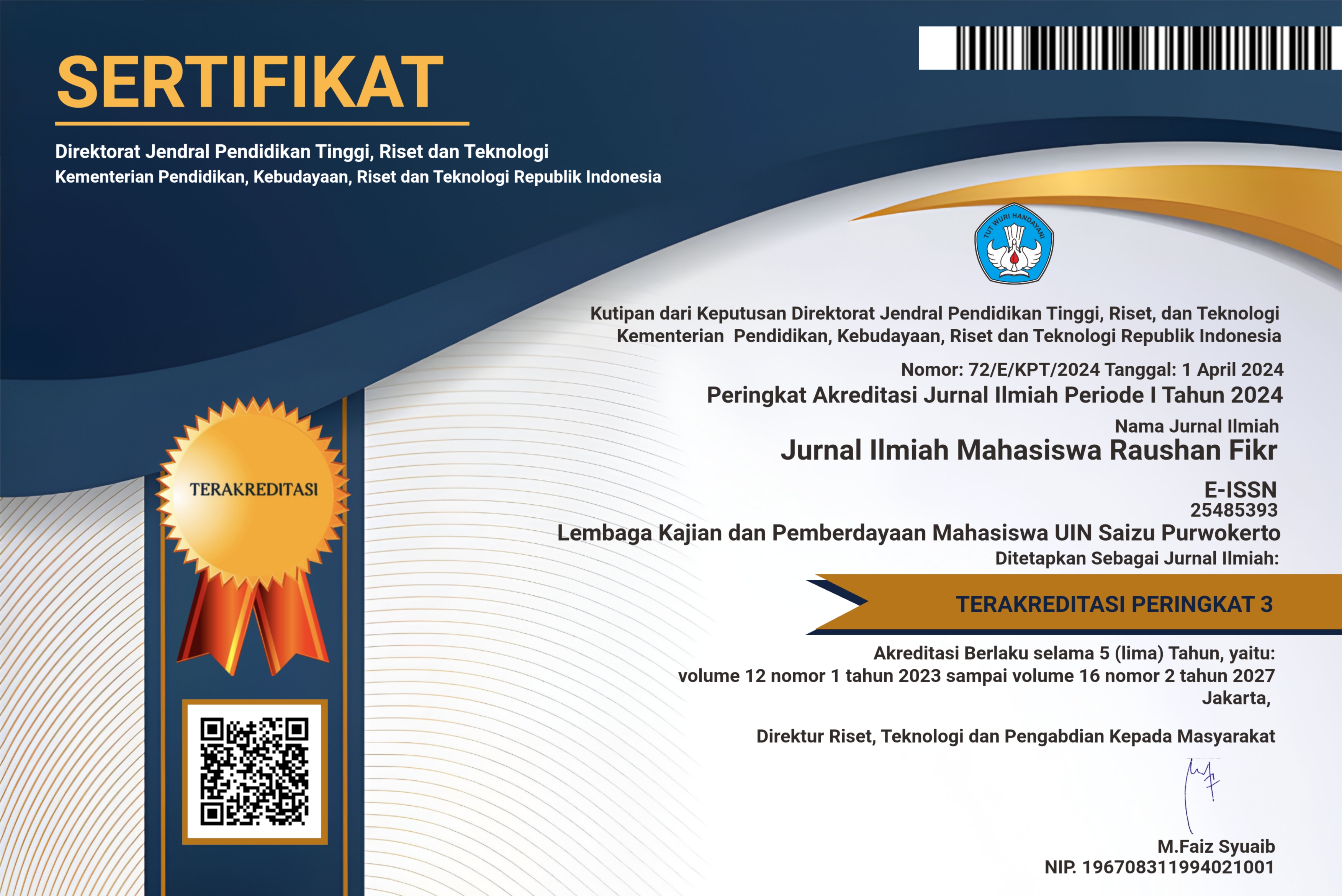Land, Law, and Legitimacy: Unveiling the Evidentiary Power of Ownership Certificates in the Confluence of Islamic and Agrarian Legal Traditions
DOI:
https://doi.org/10.24090/jimrf.v14i1.13177Keywords:
Land Ownership Certificate, Legal Evidence, Positive Law, Islamic LawAbstract
This study examines the legal status of land ownership certificates from the perspectives of positive law and Islamic jurisprudence. It explores national procedures for land certification and Islamic concepts of ownership and evidence, such as ikrar (declaration), shahadah (witness testimony), and ihya al-mawat (revival of dead land). Using a qualitative, normative-juridical method, the research analyzes statutory land rules and Islamic legal principles. Findings show that land certificates have strong evidentiary value under national law. However, bureaucratic delays, high administrative costs, and maladministration hinder the process. In Islamic law, such certificates may be recognized as valid ownership proof if acquired lawfully and aligned with justice and public welfare (maslahah). Islamic jurisprudence also emphasizes clarity in property rights to prevent disputes and promote fairness. Ultimately, while the two legal systems operate on distinct foundations, they can be integrated to build a more just and legally certain framework for land ownership.Downloads
References
Amin, M. (2014). Konsep Keadilan dalam Perspektif Filsafat Hukum Islam. Al-Daulah: Jurnal Hukum Dan Perundangan Islam, 4(2), 323–342.
Ardani, M. N. (2019). Tantangan Pelaksanaan Kegiatan Pendaftaran Tanah Sistematis Lengkap dalam Rangka Mewujudkan Pemberian Kepastian Hukum. Gema Keadilan, 6(3), 268–286. https://doi.org/10.14710/gk.2019.6659
Avivah, L. N., Sutaryono, S., & Andari, D. W. T. A. (2022). Pentingnya Pendaftaran Tanah untuk Pertama Kali dalam Rangka Perlindungan Hukum Kepemilikan Sertifikat Tanah. Tunas Agraria, 5(3), 197–210. https://doi.org/10.31292/jta.v5i3.186
Az-Zuhaili, W. (2006). Tafsir Al-Wasit (Muqaddimah Tafsir Al-Wasit). Dar al-Fikr.
Azmi, A. U., & Putrijanti, A. (2024). Penyelesaian Sengketa Tanah Terhadap Sertipikat Overlapping Pada Putusan PTUN Batang No. 044/g/2014/PTUN.Smg. NOTARIUS, 17(2), 1069–1087.
Faisal Yahya, W. M. A. (2018). Penerimaan Kesaksian Tanpa Sumpah Dalam Perkara Cerai Talak ( Analisis Putusan Hakim Tingkat Banding Nomor 45 / Pdt . G / 2017 / MS . Aceh ) Faisal Yahya Wani Maulida Alsa Fakultas Syariah dan Hukum UIN Ar-Raniry. Media Syari’ah, 20(2), 242–260.
Habibi, M. (2020). Legalitas Hukum Islam dalam Sistem Peradilan Indonesia. Media Syari’ah, 22(2), 129–149. https://doi.org/10.22373/jms.v22i2.8050
Ismail Pane; Hasan Syazali; Syaflin Halim; Karimuddin; Imam Asrofi; Muhammad Fadlan; Kartini; Muhammad Saleh. (2022). Fiqh Mu’amalah Kontemporer (M. Ridwan (ed.)). Yayasan Penerbit Muhammad Zaini.
Junaidi Abdullah, A. (2015). Wakaf Uang Sebagai Instrumen Sistem Ekonomi Islam Yang Berkeadilan. Jurnal Zakat Dan Wakaf, 1(1), 200–215.
Kaunang, M. C. (2016). Proses Pelaksanaan Pendaftaran Tanah Menurut Peraturan Pemerintah Nomor 24 Tahun 1997. Lex Crimen, 5(4), 68–75.
Lawang, K. A., Fahmi, M., & Amruzi, A. L. (2023). Law Politics Of People’s Mining Based On Maqashid Syariah’s. Russian Law Journal, XI(3), 269–279.
Mansyur, Z. (2020). Implementasi Teori Maqashid Syari`Ah Asy-Syatibi Dalam Muamalah Kontemporer. Jurisdictie, 11(1), 67. https://doi.org/10.18860/j.v11i1.7675
Marendah, R. K. E. (2023). Metodologi Penelitian Kualitatif. Yayasan Penerbit Muhammad Zaini.
Moleong, L. J. (2007). Metode Penelitian Kualitatif (Cet. XXIV). Bandung: Remaja Rosda Karya.
Musfira. (2022). Ijma’ dalam Kajian Ushul Fiqh (Karimuddin Abdullah Lawang (ed.)). Yayasan Sahabat Alam Rafflesia.
Mustafa Kamal. (2022). Wakaf Uang dalam Tinjauan Fiqh Muqarran (K. A. Lawang (ed.); Cet. I). Rumah Cemerlang.
Purbandari. (2021). Pembatalan Sertipikat Hak Atas Tanah Oleh Badan Pertanahan Nasional. Yure Hemano, 5(2), 32.
Putri, A. K., & Hidayati, N. (2023). Akibat Hukum Hak Atas Tanah Tanpa Sertifikat Resmi Sebagai Tanda Kepemilikan Apabila Terjadi Sengketa. Jurnal Ilmiah Research Student, 1(2), 482–491.
Ridwan, R. (2013). Hak Milik atas Tanah dalam Perspektif Hukum Islam dan Hukum Pertanahan Indonesia. Al-Manahij: Jurnal Kajian Hukum Islam, 7(2), 257–270. https://doi.org/10.24090/mnh.v7i2.568
Sasmiar, R. M. H. (2023). Penataan Struktur Hukum Hak Atas Tanah dalam Rangka Keadilan dan Investasi. Recital Review, 5(2), 209–242.
Shobirin, S. (2016). Jual Beli Dalam Pandangan Islam. BISNIS : Jurnal Bisnis Dan Manajemen Islam, 3(2), 239. https://doi.org/10.21043/bisnis.v3i2.1494
Sri Suwarni. (2010). Kajian Tentang Pelaksanaan Pencatatan Sipil Perspektif UU NO. 23 Tahun 2006. Media Hukum, 17(1), 96–114.
Sugiyono. (2017). Metode Penelitian Kualitatif. Alfabeta.
U. Kamilah Mukhtar Ghaffar; Muhammad Saleh; Muhammad Yasir; Rina Septiani; Khurul Anam; Karimuddin Abdullah Lawang. (2024). Kewarisan Anak Angkat dalam Masyarakat Muslim di Indonesia. Perkumpulan Rumah Cemerlang Indonesia.
Downloads
Published
How to Cite
Issue
Section
License
Copyright (c) 2025 Emah Nikmah, Hamdan Azhar Siregar

This work is licensed under a Creative Commons Attribution-NonCommercial-ShareAlike 4.0 International License.
Authors who publish with this journal agree to the following terms:
- Authors retain copyright and grant the journal right of first publication with the work simultaneously licensed under a Creative Commons Attribution-NonCommercial-ShareAlike 4.0 International License that allows others to share the work with an acknowledgement of the work's authorship and initial publication in this journal.
- Authors are able to enter into separate, additional contractual arrangements for the non-exclusive distribution of the journal's published version of the work (e.g., post it to an institutional repository or publish it in a book), with an acknowledgement of its initial publication in this journal.
- Authors are permitted and encouraged to post their work online (e.g., in institutional repositories or on their website) prior to and during the submission process, as it can lead to productive exchanges, as well as earlier and greater citation of published work (See The Effect of Open Access).
















